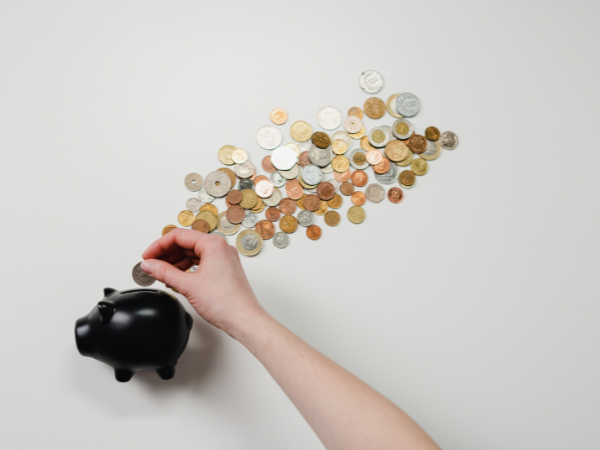Consumer behaviors from COVID
You’d be surprised once you look at the changes in consumer behaviors from COVID. It shows that this pandemic’s impact didn’t just stay in public health. The lockdowns may have minimized the spread of the virus, but it didn’t stop the economic effects. In response, people changed how they buy and sell, and the changes may stick even after the pandemic.
That’s why understanding consumer behavior is so important right now. It will give people an idea of how the post-COVID world would look like. You will be aware of the factors brought by the coronavirus that is reshaping our lives. More importantly, you will see what your place might be in that so-called new normal.
We’ll start by elaborating further on why you should learn about recent consumer behavior. Then, we’ll go through the factors that caused people to act and think in a new way. More importantly, we will show how you can react to these changes. Later, you’ll see that individuals and businesses can use these behaviors to their advantage!
Why must I study consumer behavior?

You might be wondering why we speak so highly about consumer behavior. Perhaps you’re thinking that it’s just “buying behavior,” but it’s more than that.
People buy stuff based on what they need or want, and these desires aren’t just from within. These personal factors follow social factors as well.
Following these factors will show you how people will shape their society in the long run. If they dine at restaurants more often, these businesses will likely thrive.
In turn, you may find more jobs in the restaurant industry. See how consumer behavior has shown you a way to meet your specific need for employment?
You probably have lost your job or business because of the pandemic. Tracing consumer behavior from COVID can be your guide in rebuilding your livelihood.
Businesses are also interested in the factors that influence consumer behavior. This is why the largest ones have recently conducted lots of behavior studies and consumer research.
You won’t have to sift through them yourself, though. We’ve compiled many of them below, so you can easily read and understand the consumer insights.
How did COVID change consumer behavior?
- People buy more essentials.
- More customers look for new brands and quality.
- More people buy online.
- People spend more on leisure.
#1. People buy more essentials
People lost their jobs and businesses, so people have to get the most out of each penny. This means they spent more on their needs and less on their wants.
A study of consumers from the Public Library of Sciences (PLOS) found that spending for necessities increased by 91%, while purchases for non-essentials dropped by 36%.
What were these essentials, though, and which ones did people buy more? Let’s take a look at consumers-based stats from PwC:
- Non-perishable groceries – 27%
- Household and cleaning supplies – 25%
- Frozen food – 25%
- Perishable groceries – 12%
- Pet care – 11%
- Personal care and medicines – 11%
- Non-alcoholic drinks – 8%
- Child care products – 7%
- Alcoholic drinks and tobacco – 6%
Consumer behavior has changed radically in response to the COVID-19 lockdown. Here's what companies need to know to plan for the recovery: https://t.co/ewJkpFoINX #TheNextNormal pic.twitter.com/SiVQ5eMnh0
— McKinsey & Company (@McKinsey) August 21, 2020
#2. More customers look for new brands and quality.
Big-name brands are noticing their loyal customers checking their competitors, and this is because people are looking for quality when buying stuff nowadays.
As we said, people want to get the most out of the money they still have, and this is why they’re more willing to look for better and cheaper products and services.
What’s more, online services are making it easier to find alternatives. If businesses don’t do something, they may have fewer existing customers soon.
Read More: The Inspiring Brands Of 2021
#3. More people buy online.
People have been spending most of their time at home for almost two years because of the pandemic. This is why we saw more people taking on remote jobs.
Not only do they work at home, but they now spend at home too. Customers buy more frequently using super apps than they ever did before the pandemic.
Also, this led people to use money transfer apps like Zelle and Cash App more often. This means businesses should find a way to accept online payments.
#4. People spend more on leisure.
People are spending more time in their homes, so there’s not much to do. This is why more of them passed the time by binging online shows and movies.
The first name that comes to mind is Netflix, especially with the trending Squid Game. However, the business has been great for other companies like YouTube TV.
Of course, people spend their time in other ways too. Here are the most common activities people did aside from watching online series:
- Hobbies like music and art
- Social media
- Cooking
- Physical fitness
How should I respond to these changes?
The best way to adapt to these changes is by fixing your finances. You will need money to survive and thrive with these trends, and here’s how you can do it:
- Write a budget – Jot down the needs and wants you often buy. Then, figure out your take-home income by getting the difference between your salary and taxes.
- Spend less – Stop buying things you don’t need or choose cheaper alternatives. For example, you can cancel subscriptions you’re not using. Also, you may want to buy cheaper brands of the same groceries you usually buy.
- Make more money – You could sell things you’re not using while you’re looking for work. If you still have a job, you might want to get a side hustle. These methods can add to your current funds.
- Pay your debts – Spending less on unpaid balances means having more for necessary expenses. Try using the money you’re getting from your side gig. If that’s not enough, click here for debt reduction tips.
- Build an emergency fund – You must have spare cash if something unexpected happens, and this will help you cover it while keeping your finances untouched.
Then, you should try investing. Despite the doom and gloom, you can find a lot of good assets out there. Investments can help you make more money now and for your future.
Also, you might want to learn new skills. This will help you find new work, retain your existing one, and improve your overall career. You could try an online MBA or other courses.
How should businesses respond?
If you have a small business, expect to compete even harder than ever. However, you might need help to recover first. This recovery strategy could help:
- Respond – Your first step is to keep your company running. Start by taking care of your employees’ health. Then, inform your clients about your current dilemma to maintain good relations.
- Recover – Next, you must find a way to restart operations. This could mean finding new suppliers, hiring more workers, and restructuring expenses.
- Renew – Once the company runs again, it’s time for digital transformation. These could improve customer experience, and your marketing campaigns will precisely promote your target audience.
If you haven’t adopted new technology to your business, then it’s not working at its fullest. The market has shifted, so you’re expected to deliver a different level of service.
Final thoughts
The changes in consumer behavior from COVID mean everyone must learn to adapt. We should all expect to see more changes occur even after the pandemic.
If you’re a business owner, this may seem overwhelming. After all, you will have to restart your company while making sense of all the changes brought by the coronavirus.
Fortunately, LeadAdvisors is here to help. Let one of the best digital marketing companies handle your marketing to focus on recovery. Click here to learn more.





